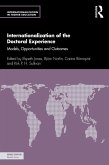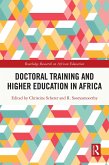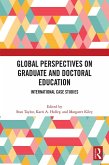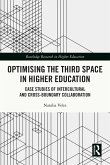Recent decades have seen an explosion in doctoral education worldwide. Increased potential for diverse employment has generated greater interest, with cultural, political and environmental tensions focusing the attention of new creative, responsible scholars.
Towards a Global Core Value System in Doctoral Education provides an evaluation of changes and reforms in doctoral education since 2000. Recognising the diversity of academic cultures and institutional systems worldwide, the book advocates for a core value system to overcome inequalities in access to doctoral education and the provision of knowledge. Building on in-depth perspectives of scholars and young researchers from more than 25 countries, the chapters focus on the structures and quality assurance models of doctoral education, supervision, and funding from an institutional and comparative perspective. The book examines capacity building in the era of globalisation, global labour market developments for doctoral graduates, and explores the ethical challenges and political contestations that may manifest in the process of pursuing a PhD.
Experts and early career researchers in the Global North and South collaborated in interdisciplinary and intergenerational teams to develop guidelines for doctoral education. They learned from each other about how to act courageously within a complex global context. The resulting recommendations and reflections are an invitation to reflect on the frames and conditions of doctoral education today.
Towards a Global Core Value System in Doctoral Education provides an evaluation of changes and reforms in doctoral education since 2000. Recognising the diversity of academic cultures and institutional systems worldwide, the book advocates for a core value system to overcome inequalities in access to doctoral education and the provision of knowledge. Building on in-depth perspectives of scholars and young researchers from more than 25 countries, the chapters focus on the structures and quality assurance models of doctoral education, supervision, and funding from an institutional and comparative perspective. The book examines capacity building in the era of globalisation, global labour market developments for doctoral graduates, and explores the ethical challenges and political contestations that may manifest in the process of pursuing a PhD.
Experts and early career researchers in the Global North and South collaborated in interdisciplinary and intergenerational teams to develop guidelines for doctoral education. They learned from each other about how to act courageously within a complex global context. The resulting recommendations and reflections are an invitation to reflect on the frames and conditions of doctoral education today.
Dieser Download kann aus rechtlichen Gründen nur mit Rechnungsadresse in A, D ausgeliefert werden.









